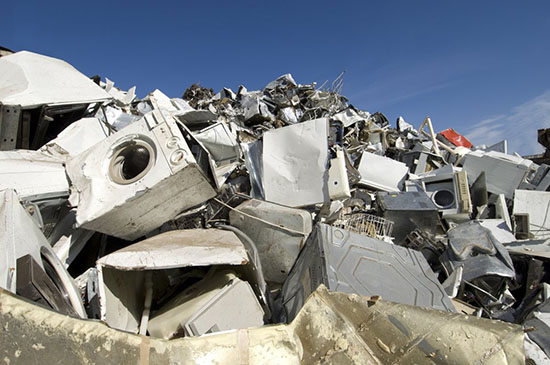“修理权”运动逐渐深入人心,制造商恐受重大影响

|
欧盟成员国在上周围绕洗碗机的效率和修理进行了投票。如果这听起来有点与洗碗水一样无聊的话,那么请回忆一下自家洗碗机上一次是什么时候坏的。在对应的法规出台之后,洗碗机修理将成为一件十分容易、便宜的事情。然而,人们不能自行拆卸机器,因为此举会导致保修的失效。因此,人们只能购买新的型号,然后扔掉旧机器。 尽管这对制造商来说是个好消息,但却逐渐成为了令消费者头疼的问题。英国广播公司称,欧盟和美国至少18个州的监管当局将开始听取和考虑一系列相关议案,以期通过提升家电的耐用度和修理便利度,解决计划报废的影响。 上周的洗碗机投票只不过是修订《2009年生态设计指令》的部分举措。该法令的内容包罗万象,从欧盟内销售的真空吸尘器的能耗,到家用电器和电子产品的回收率等,无所不包。总的来说,欧盟将审视各类物品的制造法规,从照明和电视一直到大型家电,例如洗衣机和冰箱。 与此同时,维权人士已经在美国提出了法案草案,旨在让消费者在修理和维护其财产方面获得更大的话语权。美国国会图书馆在2015年裁决,农民在必要的情况下可在修理拖拉机等设备时对软件进行修改,而这一裁决引发了拖拉机制造商约翰迪尔公司的反对,以及多个农业州的法律大战。 在所谓的修理权运动中,包括《消费者报告》杂志和iFixit网站在内的机构一直在推广迫使制造商做出让步的相关标准,从而让消费者或独立修理店对其产品的维修将变得合理合法。《消费者报告》杂志今年早些时候称,事实上,为了让当地汽车机修厂获得日渐增多的电动汽车的维修权,当局同样施加了压力。 这是因为制造商更希望能够尽可能长久地掌握对产品的控制权。例如,欧洲协会Digital Europe向英国广播公司透露,“法规草案限制了市场准入,偏离了国际公认的最佳实践,而且不利于知识产权保护。” 维修协会的盖伊·戈登·伯恩对《消费者报告》杂志说:“他们正在与客户进行斗争,但我并不认为这是一个能够致胜的策略。”(财富中文网) 译者:冯丰 审校:夏林 |
European Union member states have voted on dishwasher efficiency and repair at last week. If that sounds as dull as, well, dishwater, then you need to consider the last time your own dishwasher broke. With the right rules in place, it would be a cheap and easy fix. However, you’re not allowed to fiddle with the machine because it would invalidate the warranty. So, instead, you go and buy a new model and throw the old one on the dump. While that’s good for manufacturers, it is increasingly becoming a problem for consumers. In the EU and at least 18 U.S. states, regulators are starting to listen and considering proposals that address the impact of planned obsolescence by making household goods sturdier and easier to mend, reports the BBC. Last week’s dishwasher vote was just one of a series revising the 2009 Ecodesign Directive, which governs everything from how much energy a vacuum cleaner sold in the EU can use to how many household appliances and electronics are recycled. Put together, the EU is looking at the manufacturing rules surrounding everything from lighting to televisions and large home appliances, such as washing machines and fridges. At the same time, activists have introduced draft laws in the U.S. that seek to give consumers more control over how they repair and maintain their property. The U.S. Library of Congress ruled in 2015 that farmers could modify software if necessary to repair devices such as tractors, prompting a backlash from tractor manufacturer John Deere and legislative battles in several farming states. Consumer Reports (CR) and iFixit, among others in the so-called right to repair movement, have promoted standards that would force manufacturers to make it legal and practical for consumers, or independent repair shops, to get under the hood of their devices. In fact, it took such pressure to enable local car mechanics to get under the hood of increasingly electronic cars, CR reported earlier this year. That’s because manufacturers prefer to keep control over their products as long as possible. For example, Digital Europe told the BBC that Europe’s “draft regulations limit market access, deviate from internationally-recognized best practices and compromise intellectual property.” Gay Gordon-Byrne of the The Repair Association added to CR: “They’re fighting their customers. I don’t think that’s a winning strategy.” |













